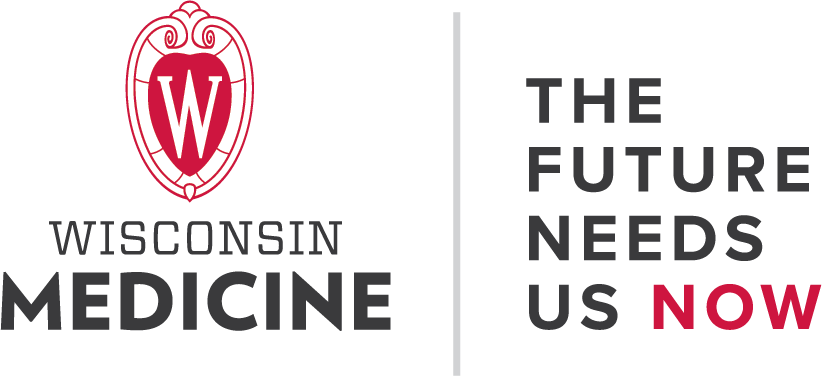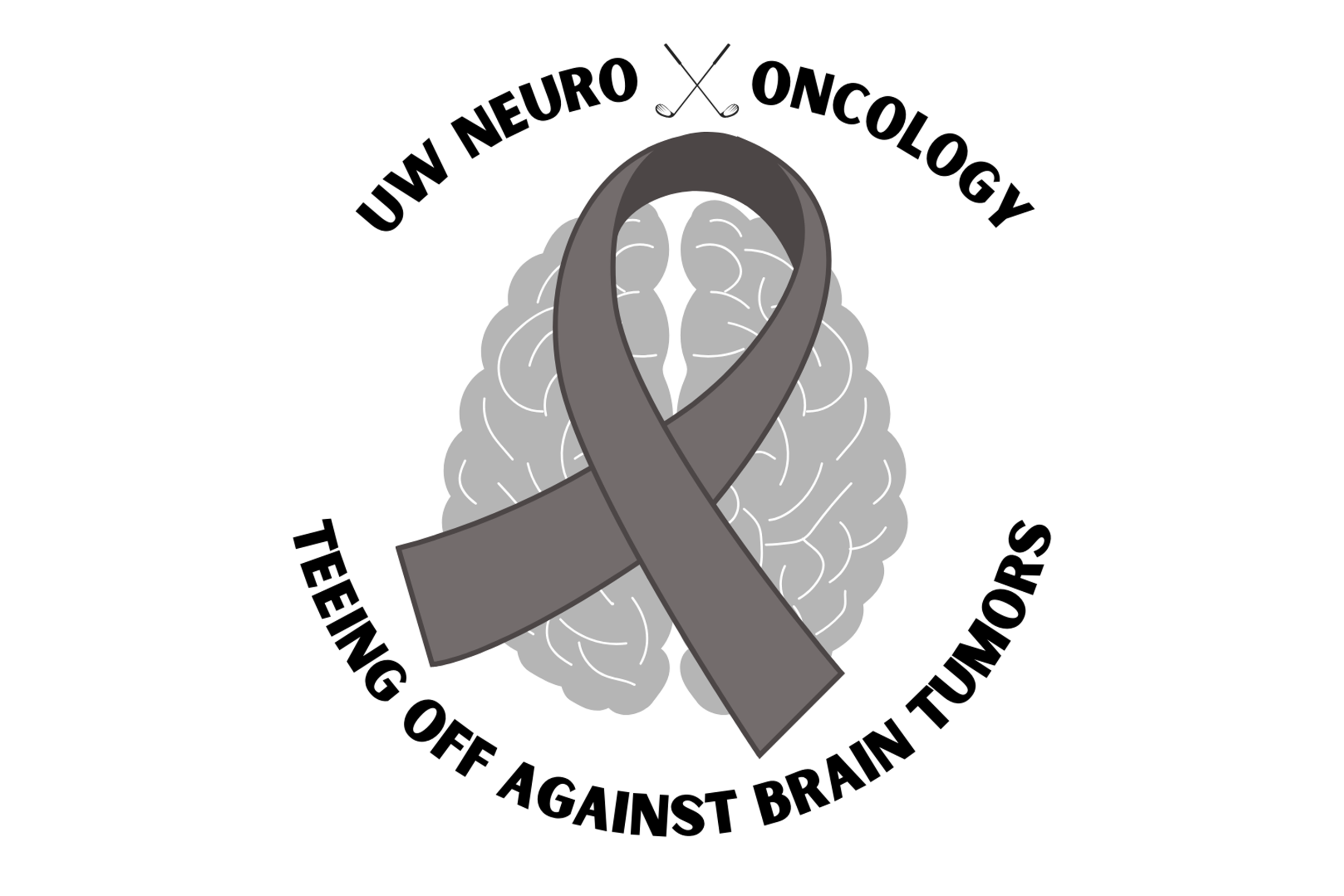
UW Health | Carbone Cancer Center
The Future Needs Us Now
Transforming the Future of Cancer Research and Patient Care
A world without cancer. Sound too good to be true? Not to the team of experts in every cancer specialty at the UW Health | Carbone Cancer Center, who will stop at nothing in their rigorous pursuit of ending cancer — for good. With a focus on research, advanced treatments, the latest clinical trials, and unrivaled compassionate care, Carbone Cancer Center seeks to ensure that every patient has the access needed to achieve better outcomes.
However, remaining among the nation’s top cancer centers will take more than the brightest minds in medicine. It will require the dedication of donors. Going forward, Carbone’s work will be guided by three overarching goals: innovative and impactful research, patient- and family-centered care, and community and collaborative partnerships — all in an effort to find cancer cures. What a wonderful world that would be.
Wisconsin Medicine is a partnership between world leading medical institutions UW Health and the UW School of Medicine and Public Health, who have partnered for over 100 years on innovative treatments, research, education, and compassionate patient care. This powerful combination is in a unique position to usher in a new era through the Wisconsin Medicine campaign.
Gifts are being made through the University of Wisconsin Foundation which raises, invests, and distributes funds for the benefit of Wisconsin Medicine. Learn more.
Make Your Impact
-
Greatest Need Fund
Provides flexibility for research to move quickly in unexpected directions and to swiftly pursue promising clinical applications with essential discretionary funds that offer a stable foundation.
-

Research
Enables researchers to explore new ideas; purchase new technology for effective cancer research; and develop better methods of diagnosing, treating, and preventing cancer.
-

Innovation Fund
Provides unrestricted funding to strengthen operations; expand scientific capabilities; support faculty recruitment; and advance innovative ways to diagnose, treat, and prevent cancer.
-

Integrative Oncology
Supports integrative oncology services which aim to address both the physical and the psychosocial needs of patients by including eastern medicines, acupuncture, yoga, mindfulness, and more.
-

Eastpark Medical Center
Looks to transform cancer care through new technology, treatments, access to clinical trials, and a dramatically improved patient experience at a new facility on Madison’s East side.
-

Patient Experience Program
Provides care coordination and support for patients and families who require assistance in navigating their cancer treatment within the UW Health system.
Philanthropy Brings Research to Life
With your support, innovative cancer research, treatments, and care can continue to be pursued and put into practice. Discover more about how your gift can bring a cure for cancer closer.
Impact In Action
Carbone Cancer Center marks 50 years of cancer innovation
“I’m very proud to be a part of that rich legacy. What we’ve done in my time, and what Carbone will continue to do, is honor that legacy by continuing to add to it: To be a global leader in cancer prevention, diagnosis and care.”
Since 1973, UW Health | Carbone Cancer Center has remained at the forefront of life-saving discoveries as Wisconsin’s only NCI-designated comprehensive cancer center.
Combatting Aggressive Breast Cancer through Vaccination
“Having a vaccine that can prevent the development of breast cancer would be phenomenal because it means that women would not have to go through the intensive treatment that I went through,”
UW Health | Carbone Cancer Center is one of three research institutions in the U.S. selected to host a phase I clinical trial of a vaccine for triple-negative breast cancer patients at stages I-III. Dr. Eva Vivian was the first patient nationwide to begin the vaccine series.
Additional Impacts in Action
UW Health and the UW School of Medicine and Public Health have touched so many lives. And each story — from patients and doctors to researchers and students — offers inspiration and a resolve to continue blazing new trails. Check out every amazing story that has us all striving for a healthier tomorrow.
Upcoming Events
Program Highlights
UW Health | Carbone Cancer Center
National Recognition
Established in 1973, Carbone Cancer Center is one of the original six university-based comprehensive cancer centers in the nation recognized by the National Cancer Institute and is Wisconsin’s only comprehensive cancer center.
Rated “outstanding” by experts from other leading comprehensive cancer centers, placing it in the top 10 percent of all 70 NCI-designated cancer centers in the United States.
A unanimous selection to the National Comprehensive Cancer Network, an alliance of the top 30 cancer centers in the United States.
Carbone Cancer Center by the Numbers
33,000+ people in Carbone Cancer Center’s care each year
36,000+ patients on clinical trials since 1990, including population health, genetic, behavorial, smoking cessation, therapeutic, prevention, and more
250 active clinical trials each year; 25% of these are designed for children
20+ cancer researchers leading national trials
357 cancer researchers within 55 departments and 11 schools highlighting the benefits of cross-disciplinary experts at a large public research university
389,000 square feet of contiguous and collaborative research space
4 members of the National Academy of Sciences
2 members of the National Academy of Medicine
Notable Regional and State Partnerships
Big Ten Cancer Research Consortium: Clinical trials collaboration among Big Ten cancer centers to benefit more patients around the country.
Wisconsin Oncology Network: Since 1998, more than 2,000 Wisconsin patients have participated in innovative drug clinical trials within their home communities.
Precision Medicine Molecular Tumor Board: Carbone panel of expert clinicians and scientists who analyze tumor samples from patients across Wisconsin and recommend targeted therapies. Has reviewed more than 4,000 cases since 2015.
Wisconsin Community Advocacy Board: Diverse representation around the state to reduce cancer care disparities in rural areas and among communities of color.
UW–Madison: A Legacy in Cancer Research
1930s: Pioneered Moh’s surgery for skin cancer
1940s: McArdle Laboratory for Cancer Research opens as first discovery science cancer center in the United States
1950s: 5-fluorouracil developed to treat various cancers
1960s: Performed first successful bone marrow transplant
1970s: Carbone designated one of first six comprehensive cancer centers in the United States
1980s: Tamoxifen developed to treat breast cancer
1990s: Drs. Paul Carbone and Howard Bailey created a cancer prevention trials group, which evolved into one of five NCI-designated national groups
2000s: Tomotherapy developed, a specialized form of radiation therapy
2010s: Secured Wisconsin’s first NIH-funded Specialized Program of Research Excellence (SPORE)
2020s: Reselected by NIH as one of five national coordinating centers for Cancer Prevention Trials Network
More Ways to Support the UW Health | Carbone Cancer Center
Questions about the UW Health | Carbone Cancer Center
Ushering in a new era of medicine and tackling the toughest challenges in health care may leave you as curious as you are excited.
To discover more about planned giving and chairs and professorships — and how vital both are to keeping the Carbone Cancer Center among the nation’s top cancer centers — please complete the following contact form. Reach out with any questions or comments about those major efforts or other issues you’d like to discuss. We’d love to continue the conversation about the ways the Carbone Cancer Center is transforming the future of cancer research and patient care.
The Future Needs Us Now — the Campaign for Wisconsin Medicine
UW Health and the University of Wisconsin School of Medicine and Public Health are ushering in a new era of medicine — one that builds on breakthroughs to save more lives.












